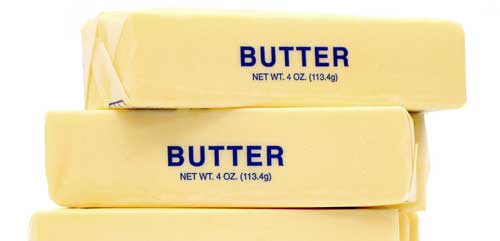
Butter consumption climbed to a 44-year high and margarine sales hit a 70-year low. With those two trends in mind, some of world's staunchest margarine proponents are now adding butter to their spreads. Certainly, that embrace of butter has more to do with sales and shoring up the company's bottom line than it has to do with a food-based revelation within the corporate boardroom. Yet, the trend of consumers' new love affair with butter and the about-face in corporate strategy cannot be denied.
The world's largest margarine producer, Unilever, has taken the biggest corporate shift on butter, noted Bloomberg Businessweek in its February 3 issue. As recently as 2010, Paul Polman, Unilever's CEO, still had a full-scale assault on butter, noting it "kills" when talking about butter's effect on the human diet. Just three years later, Unilever's German-based Rama brand added butter to its spread. The same situation took place in Finland. As Businessweek noted, this decision by Unilever occurred after three straight years of declining sales in its spreads.
This is a major change for the company who fought against butter vigorously over the years. The company that sells Country Crock and I Can't Believe It's Not Butter in the U.S. obtains 7 percent of its total sales from margarine, and the company accounts for 30 percent of all spreads sold globally, noted Businessweek.
This embracing of butter is good news for dairy producers. As consumers turn to natural products and away from those with trans fats, margarine continues to reel from a badly damaged reputation. Even though margarine has been reformulated to improve its image, consumers still have a bad taste in their mouth over its previously unhealthy formulation.
To read the entire Bloomberg report, go to: www.businessweek.com.








